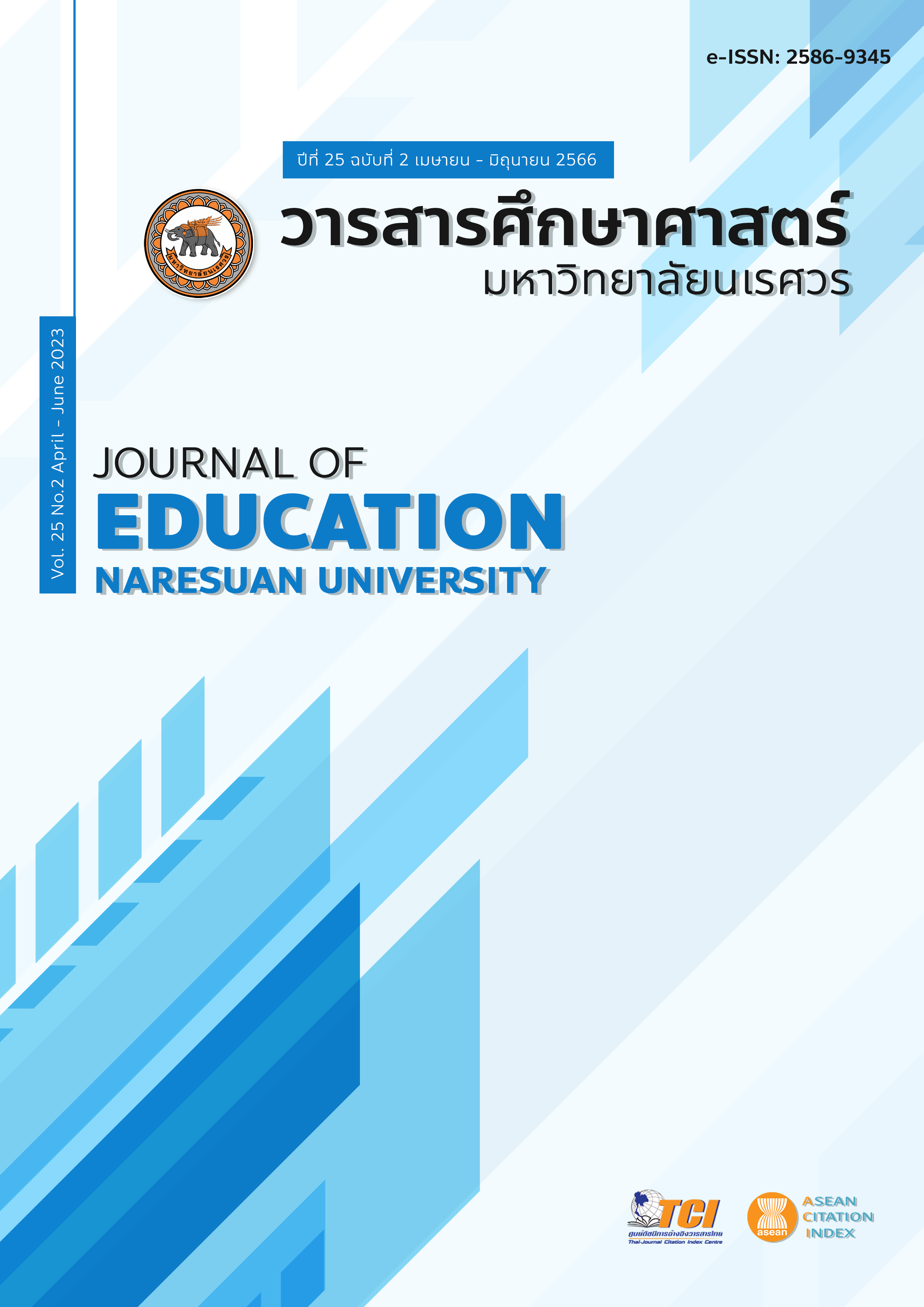THE NEEDS OF DEVELOPING PRIMARY SCHOOL ACADEMIC MANAGEMENT BASED ON THE CONCEPT OF FUTURE LEADERSHIP SKILLS ความต้องการจำเป็นในการพัฒนาการบริหารวิชาการโรงเรียนประถมศึกษา ตามแนวคิดทักษะภาวะผู้นำในอนาคต
Main Article Content
Abstract
The purpose of this research was to study the current and desirable condition of primary school academic management and to analyze the priority needs of developing primary school academic management based on the concept of future leadership skills. This research applied a quantitative approach. The population were primary schools under the office of the basic education commission, total of 27,414 schools. The sample were 394 primary schools, selected by applying stratified random sampling, and simple random sampling. The key respondents were 1,970 people including 788 school administrators and 1,182 teachers. The research instrument was a questionnaire. The data were analyzed by frequency, percentage, means, standard deviation, and PNImodified. The research result was as follows 1) the current condition of primary school academic management based on the concept of future leadership skills; overall at a high level, classified with regards to academic management, it was found that the highest average was the development of teaching and learning, followed by the development of measurement and evaluation and the development of the school curriculum, respectively. When classified by future leadership skills, it was found that the highest average were interpersonal communication skills, followed by self-confidence skills, and adaptive skills, respectively. The desirable; overall at a highest level, classified with regards to academic management, it was found that the highest average was the development of measurement and evaluation, followed by the development of the school curriculum, and the development of teaching and learning, respectively. When classified by future leadership skills, It was found that the skills with the highest average were interpersonal communication skills, followed by inspiring skills, and innovation skills based on morality and ethics, respectively 2) The priority needs of developing primary school academic management based on the future leadership skills classified with regards to academic management; overall, the highest priority needs index fell on the development of measurement and evaluation (PNImodified = 0.127), the development of the school curriculum (PNImodified = 0.117) and the development of teaching and learning (PNImodified = 0.085), respectively. When classified with the future leadership skills; overall, the highest priority needs index fell on the critical thinking skills (PNImodified = 0.140), the strategic planning skills (PNImodified = 0.137) and the creative problem-solving skills (PNImodified = 0.116), respectively.
Article Details

This work is licensed under a Creative Commons Attribution-NonCommercial-NoDerivatives 4.0 International License.
The owner of the article does not copy or violate any of its copyright. If any copyright infringement occurs or prosecution, in any case, the Editorial Board is not involved in all the rights to the owner of the article to be performed.
References
Bennis, W. (1991). Learning some basic truisms about leadership. National Forum, 71(1), 12-15.
Charoenwongsak, K. (2007). “Leadership” can be created in your youth. Retrieved 16 August 2019, from http://www.kriengsak.com [in Thai]
Deloitte. (2016). the new organization: different by design. Retrieved May 3, 2019, from https://www2.deloitte.com/content/dam/Deloitte/global/Documents/HumanCapital/gx-dup-global-human-capital-trends-2016.pdf
Iordanoglou, D. (2018). Future trends in leadership development practices and the crucial leadership skills. Journal of Leadership, Accountability and Ethics, 15(2), 118 - 129.
Kraivin, P. (2019). Private school management strategy for secondary education level according to the concept of developing students to have leadership fluently (Doctoral Dissertation). Bangkok: Chulalongkorn University. [in Thai]
Malithong, K. (2000). Educational technology and innovation (2nd ed.). Bangkok: Arun Printing. [in Thai]
Ministry of Education. (2014). Guidelines for measuring and evaluating learning outcomes according to the Basic Education Core Curriculum BE. 2551 (4th ed.). Bangkok: Publishing House of Agricultural Cooperatives Association of Thailand. [in Thai]
Ochsner, K. (2015). Pick stars early and transition them better. Paper presented at the 2015 NeuroLeadership Summit, New York.
Office of Academic and Educational Standards. (2010). Guidelines for organizing student development activities according to the curriculum Center of Basic Education 2008 (2nd ed.). Bangkok: Publishing House of Agricultural Cooperatives of Thailand. [in Thai]
Office of the Basic Education Commission. (2019). Organization structure. Retrieved 6 April 2020, from https://www.obec.go.th/about/organizational structure. [in Thai]
Petrie, N. (2014). Future trends in leadership development. Center for Creative Leadership white paper.
Phuprasert, K. (2001). Academic administration in educational institutions. Bangkok: Tips Publication. [in Thai]
Prididilok. K. (1989). Administration and supervision of preliminary studies. Bangkok: Aksara Pipat. [in Thai]
Suwatthanaphong, A. (2015). Academic management strategies for enhancing cognitive thinking skills criticism of secondary school students (Doctoral dissertation). Bangkok: Chulalongkorn University. [in Thai]
Wehachat, R. (2007). Academic administration of basic education institutions. Songkhla: Thaksin University Book Center. [in Thai]
Wongwanich, S. (2015). Needs evaluation research necessary (3rd ed.). Bangkok: Chulalongkorn University Press. [in Thai]
Wonganutarot P. (1992). Academic administration. Bangkok: Bangkok Auxiliary Media Center. [in Thai]
Yamane, T. (1973). Statistics an introduction analysis. New York: Harper & Row.


